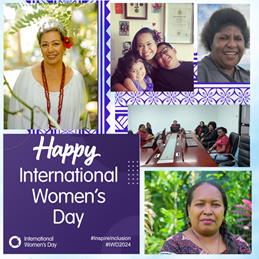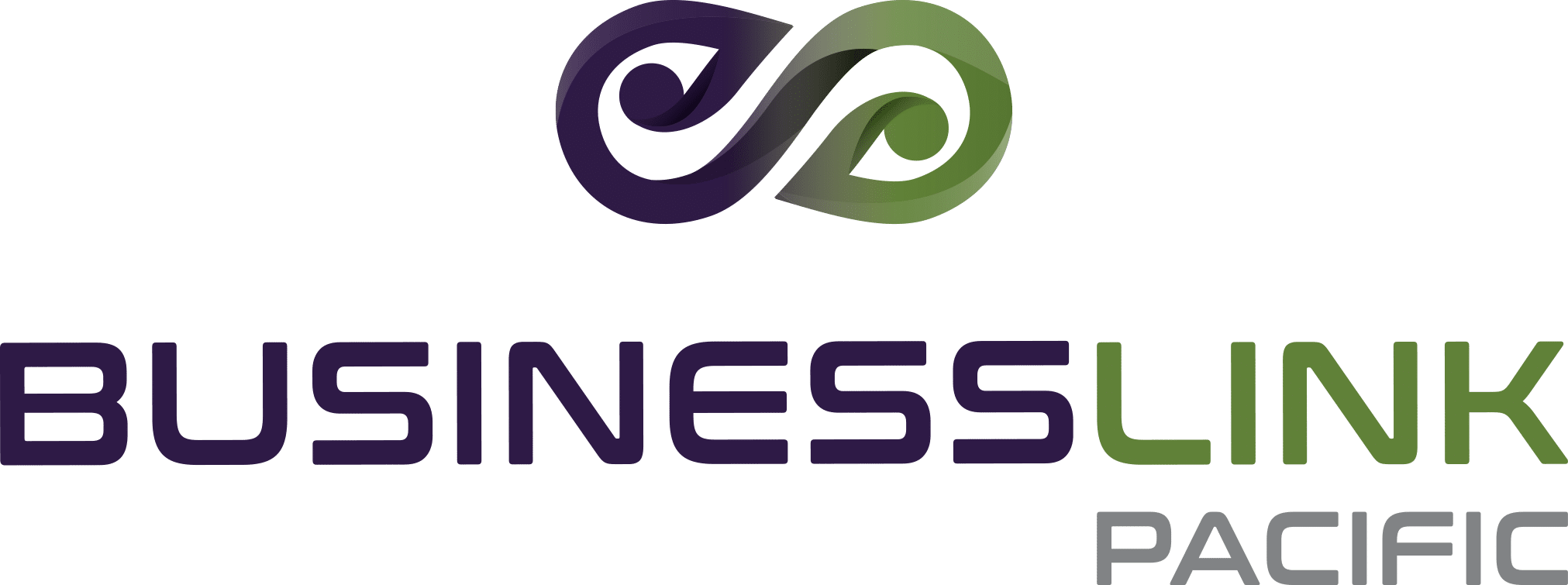
Happy International Women’s Day 2024 from the BLP Network
March 8 marks International Women’s Day 2024. This year, the theme is “Inspire Inclusion”, aspiring to create a world free of bias, stereotypes and discrimination. In other words, a gender equal world.
Through its work supporting businesses across the Pacific, Business Link Pacific works to promote inclusion, particularly supporting under-served sectors of society, such as women. We spoke to businesswomen in our Network of advisors across the Pacific to find out about challenges they have overcome in business and how they are collectively working towards a gender equal world.
Fiji: Maria Ronna Luna Pastorizo-Sekiguchi, The Greenhouse Studio and Greenhouse Coworking
Founder of award-winning marketing business The Greenhouse Studio, Maria Ronna Luna Pastorizo-Sekiguchi talks about the generational, cultural challenges faced by women in Fiji. “Bound by the expectations of society, women are the busiest people in any village. They do everything in the home, raise the children, run the household, and bring food to the table, all alongside church and community responsibilities and involvement. This is generally true not just in rural communities, but in the city also, where even career women are expected to do manage the family and household while moving up the career ladder.”
It’s no wonder that when it comes to starting a business, women lack the confidence – and the time – to do their own thing. And that’s where The Greenhouse Studio’s baby ‘Greenhouse Coworking’ comes in. After what Ronna describes as a difficult birth during the pandemic, Greenhouse Coworking was born or established to offer shared workspaces, mentoring and coaching to members, finding ways for women to overcome challenges and to find a community – a sisterhood – to support them to achieve their business and professional goals. It is a physical space where members meet, collaborate, and learn from each other.
Ronna describes an incubator programme that Greenhouse Coworking coordinated in partnership with ILO for women operating in the informal sector. “They had no idea how to go about business. They often feel alone because they already have a lot of responsibility – once you get into a community that offers support, knowledge and accountability systems, it changes everything.”
It’s not just women in the villages and rural areas who experience the heavy expectations of society in Fiji. Even in urban areas and cities where many women work in various professional industries, there’s a strong current of unconscious bias that still exists when it comes to the roles that women plan. “It’s the way we are raising our kids – we are often unaware that we are passing down archaic ways of thinking and doing, thereby creating unconscious bias in our children.”
On a personal front, Ronna is intensely proud that her two young children see her as a woman who runs her own business. Her son would never question whether a woman could be a boss because he grew up with a mum who was just that. The children understand that because mum is working, they need to help out at home. “I want to raise my kids to be feminists; my son and daughter need to understand we are all equal.”
PNG: Jonah-Ann Miro Baluntung, Oracle Pacific
Jonah-Ann Miro Baluntung, a member of BLP’s Network of business advisors and owner of Oracle Pacific (PNG) Ltd in Lae, PNG, describes her shock as an immigrant witnessing violence towards women and two traditions which are still widespread in PNG. The first, polygamy, signifies the husband’s great wealth; the second, bride price, reinforces the view that women are the property of men.
As a young businesswoman witnessing these traditional behaviours, Jonah-Ann has an earnest and unwavering commitment to create a work environment where employees are encouraged to speak up, tackle challenging tasks, and excel in areas they are good at so that staff members feel valued and trusted. “In this way, we aim to build a good foundation of inclusivity and not dominance.”
“Oracle Pacific is determined to position our working practices and culture for a generational impact, where our values in advancing inclusivity, especially for women, reverberate across time in mitigating challenges of gender-based violence for subsequent generations. We aim to create a ripple of empowerment, equality, and inclusivity from our office to even the smallest unit of society – the family.”
Samoa: Shelley Burich, Vaoala Vanilla
Shelley Burich lives and breathes business. Having gained visibility and credibility through her own start-up business, Vaoala Vanilla, Shelley has become a champion for women in businesses in Samoa, particularly those entering the e-commerce domain.
Through learning how to build a website and integrate e-commerce using Shopify for Vaoala Vanilla, Shelley now mentors others to navigate the e-commerce challenges in Samoa. The main challenge is that the payment gateway in Samoa is closed, meaning business owners must have an international bank account and address outside of Samoa if they wish to use the Shopify platform and manage their own sales transactions; otherwise, they need to engage third-party payment providers such as money transfers and mobile wallet transactions. This is naturally very limiting for small businesses wanting to expand their markets outside of Samoa.
Shelley uses opportunities to advocate for improving access to e-commerce in Samoa, strongly stating the payment gateway must open to allow foreign currency transactions in Samoa, benefitting businesses, but also the government in terms of cash entering Samoa.
UNESCAP noted that in 2020, women own up to 46% of all businesses in Samoan, and that percentage would be significantly higher for micro and small business startups. Many of these smaller businesses would benefit from access to e-commerce and the resulting access to markets outside Samoa, but many (particularly those outside of urban areas) do not have access to even basic business tools. The internet is a big one, as is the economic status which allows them to own laptops. Correcting this path has taken Shelley on a personal journey to help other women learn from her experience and skills.
Shelley is busy establishing a trust which will provide a platform for Samoan women entrepreneurs and youth business leaders, helping them to build capacity by offering capacity training given by local Samoan facilitators; a similar ethos to BLP where local advisors help local business owners. The trust aims to promote mentoring for indigenous women in business alongside indigenous coaching and to work towards an altered mindset taking an indigenous worldview.
The point of difference here is that the people involved in this trust are all women who have started their own businesses. They have all personally experienced the challenges and come from a similar start-up business background. These women are not there for personal gain, they are only there to give back to their community.
Solomon Islands: Loretta Heana Tema, LH Consulting
Loretta Heana Tema, Managing Director of LH Consulting, is the only female BLP-approved business advisor in the Solomon Islands. She is one of only a handful of women practising as registered certified accountants in the Solomons. That big gap is an indicator of how hard it is for women to be in business in the Solomons. Loretta’s association with BLP as an approved advisor has accelerated her brand and increased LH Consulting’s visibility outside of Honiara, and as a consequence its market share.
There’s no doubt it is challenging to be a woman in business in Solomon Islands. Tax rates are high, childcare and other services are not freely available. Added to that is the lack of access to knowledge to enable them to thrive in the business world in Solomon Islands, and of course the Pacific-wide problem around access to finance. Loretta personally finds inspiration every single day in seeing ways in which she can be a catalyst for the needed change.
The primary barrier, Loretta says, is how women are raised. “Women in Solomon Islands are expected to be more reserved than men in terms of networking or partnerships; and when it comes to creating capital to start a business, it’s more difficult for women because they lack the education necessary.” Education for women is a major challenge, particularly exposure to knowledge and how to do business. “That’s something women lack compared to their male counterparts who are more able to navigate the challenges through established business and personal networks.”
Despite this, there is hope for Solomon Island women in business. Loretta works with the local Institute of Chartered Accountants to promote the role of women in the executive of local companies, pushing for leadership training and trying to help people see that women can contribute in leadership roles in private sector organisations.
By partnering with Solomon Islands Chamber of Commerce, the local Solomon Islands Women in Business Association group promotes women in leadership courses to help navigate the path to leadership roles in the private sector. Such initiatives as this can only lead to improved outcomes for women in business and leadership roles in Solomon Islands.
PNG: Florence ToMangana, Kaczagi Transport
BLP business advisor Julliane Terry of Tok Stret Consulting nominated Florence ToMangana as a shining example of how it is possible for a woman to succeed in business in PNG. Florence is something of a rarity, working in the very male dominated business of boat transportation, alongside her mentoring role with Tok Stret.
Following a varied career as a teacher then transitioning to banking, Florence is setting a new professional industry standard in terms of customer service, safety and security with Kaczagi Transport, her dinghy service in Lae.
Her service runs on time, every time. She has strict safety standards with all staff wearing brightly coloured vests on duty and all cargo being tagged to prevent overloading. She provides phone credit to skippers and crew at sea to ensure communication is always possible. She encourages passengers to be on time by providing snacks and, alongside the PNG Maritime Act requirements, there’s no smoking, no alcohol, no rubbish overboard, no illicit materials and life jackets at all times.
As these professional standards foster trust among customers, demand grows, and the fleet expands. Florence’s customers include women’s fellowship groups, churches, health centres, farmers and schools groups. Her goal is to be at the forefront of improving and modernising (some might say feminising) this type of transport service and aims to share her knowledge of customer service to other operators. “The better we all are, the better our country and community.”
This International Women’s Day, join Business Link Pacific and its many women business advisors in acknowledging the challenges and celebrating the advances of Pacific women in business as we work with them towards a gender equal world.
You can contact any of the advisors in this blog through the BLP Portal https://businesslinkpacific.com/search
